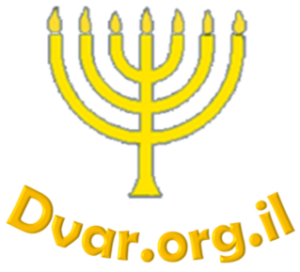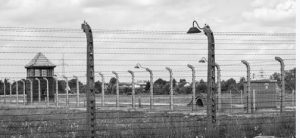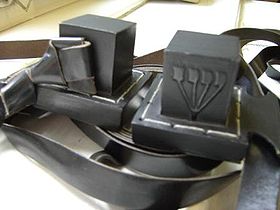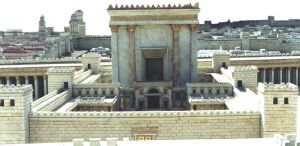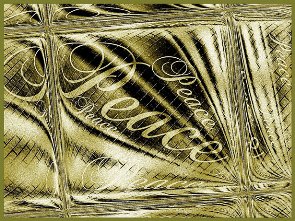
In the previous parsha, Pinchas had just slain Zimri ben Salu (prince of the tribe of Shimon) and Cozbi bat Tzur (princess of Midian and daughter of Balak) for committing immoral acts in public view. Why was he called Zimri ben Salu? Zimri – because he became white like a beaten egg (beitzah muzereth) [from seminal emissions] and Salu because he called attention to (silsel) the sins of his family. Why was she called Cozbi? She was faithless (kazvah) to her father [by consorting with Zimri]. Another explanation is that she said to her father “kos bi” (slaughter through me) this people Israel”, and indeed she did, as the plague that ravaged through the nation claimed the lives of 24,000 Israelites. In this week’s parsha, Hashem vindicates Pinchas’ action and praises him greatly, saying that he turned back His wrath and stopped the plague. We are told that after Pinchas killed Zimri, members of the tribe of Shimon advanced on him to kill him. Pinchas was so afraid that “his soul departed”. Assuming that he was dead, the Shimonites withdrew. After they left, the souls of Nadav and Avihu (the two dead sons of Aaron) entered the body of Pinchas and he revived. Why were they chosen to enter? They, like Pinchas, had an intense desire to draw close to Hashem. They had zealously offered unauthorised sacrifices, and Pinchas zealously slaughtered Zimri: both acts without formal authorisation from Moshe. Nadav and Avihu sought to be corrected by Pinchas, who channeled his zealousness in accordance with Hashem. We see in the first verse that his full name is mentioned: “Pinchas, the son of Elazar, son of Aaron the Kohen”. This is to show what a heroic act he performed. He had only been mentioned once before in the Torah, just as “Pinchas”. Here he is “son of Elazar” – the Cohanim were taught to abhor bloodshed, and a Cohen who commits murder (even justifiably) is disqualified from the Priestly Blessing in the synagogue. Furthermore, Pinchas’ action was even more uncharacteristic because he was “son of Aaron” – the one who loved peace and pursued peace. Despite the plague, the Jews still carried on with their immorality. The entire nation would have been affected if it weren’t for the magnificent act of Pinchas. Why is the name Zimri mentioned now, after his death, whereas in connection with the sin (in last week’s sedra) he is called “Son of Israel”? Because as a result of his death, the Israelites halted their immorality: thus Zimri’s name became worthy of mentioning. After the plague, Hashem commands Moshe and Elazar to count the Israelites from 20 upwards. Why straight after the plague? Rashi explains this with a parable: After wolves attack his flock, the shepherd wants to count how many sheep are left. Therefore, Hashem wanted to see how many of his “flock” remained. The princes of the tribes were not commanded to participate in the census. Why? Apparently, after the death of Zimri, the Israelites started criticising Pinchas, saying that he was a grandson of Putiel (another name for Yitro) who used to fatten calves for idolatry, yet he dared to be a prince of Israel. The people showed that their priorities were wrong: Hashem’s honour comes before communal leadership. Because of this, Hashem excluded the princes from the census as well as the appointment of Joshua later in the parsha. There then follows a genealogy of the tribes and their families. It is interesting to note that when it talks of Dathan and Aviram (the famous troublemakers) it says “they strove against the Lord” – when in fact we know that they had rebelled against Moses. This comes to teach us that if one argues against one’s teacher, it is as if he had argued against G-d. There are a number of incongruities among the tallies: the tribe of Levi was an exception to the rule in that they were tallied from age one month, yet they numbered less than half the other tribes. By way of explanation, there is an opinion that says that Hashem decreased the number of births within this tribe because they were being supported by the rest of the nation by tithes and charity, and Hashem didn’t want them to be a burden on the rest of the Jews. Shimon’s count was also significantly small – this is due to the fact that they lost over 62% in the Baal Peor incident with the Moabite women. The Land of Israel is then divided up between the tribes by three methods: lots, money, and the urim and tumim (on the breastplate of the High Priest). Joshua and Caleb were excluded, as they were the good guys in the incident of the spies. They were automatically given Timnath Serach and Hebron immediately. Regarding the tribe of Asher, why was Asher’s daughter Serach specifically mentioned? Rashi tells us that, incredibly, she was still alive, and the Torah mentions her to point out her incredible longevity. Why is she mentioned here, though? To answer this, we must realise that Serach was the only person still alive to have seen Jacob. She carried the traditions of the Patriarchs, and was able to recognise the leadership qualities of Moshe Rabbenu at the earliest stage, and that it was indeed Moses who would lead the people out of Egypt. Therefore it was poignant now, that (after the rebellions) the people finally realised that Moshe was the undisputed leader of Klal Yisrael, that Serach’s name should be mentioned, by way of vindicating her efforts to promote Moshe Rabbenu. There is a Midrash which tells us that she never died, but entered Gan Eden alive. When the daughters of Zelophchad (the one who was stoned for carrying wood on Shabbat) heard that the Land was being divided by tribes and that daughters were not qualified, they took counsel together, saying that the mercy of man is greater for males than females, but the mercy of Hashem is equal for all. They came and stood before Moshe and Elazar (who were learning at the time). Moshe brought the case before Hashem, and He judged that they should receive their father’s inheritance, and through this meritorious act of the daughters of Zelophchad, a precedent was set that if a father has no son, the inheritance goes to the daughter, and if he has no daughters, to the brothers of the deceased. Hashem then commands Moshe Rabbenu to ascend Mount Nebo to see the Land of Israel. We know that Moses was shown the Land before he died. Why was he then commanded to go now, several months before his death? The Malbim explains that he was to see the Land twice, once here, and again just prior to his death. Why then, did he have to see it now? Bearing in mind that the census of the entire nation was nearly completed, and the Sifre tells us that from this position Moshe saw more of the Land with his eyes than Joshua who traversed with his feet, when he sent thirty men to survey the entire country, we realise that Moshe was being shown the Land to qualify him to begin the distribution process. Moshe asks Hashem to appoint a new leader after him, but he seems to do so in a rather direct manner, lacking any of the supplications that usually preface his requests. This is very uncharacteristic of Moshe, who previously prayed to Hashem 515 times to let him in to the Land of Israel. The Midrash learns out from here that the rule for prefacing one’s prayer with words of entreaty applies only to personal requests; when one makes requests for the community, he should speak forcefully. During this request for a new leader befitting to be the “Manhig” of Klal Yisrael, Moshe asks for one “who shall go out before them and come in before them, who shall take them out and bring them in.” Why the seemingly unnecessary repetition? “Go out before them” refers to a king who won’t stay in his palace, but go out and fight the wars of Hashem (like Moshe did against Sichon and Og) and “take them out and bring them in” refers to a leader who will unite his people and through inspiration, take them into battle with him. Joshua is chosen by Hashem for the job. Rashi quotes the gemara saying that the Elders of the generation compared Moshe’s face to the rays of the sun, and Joshua’s face to the moon. The sun’s rays shine during the day, but after it has set, it shows ‘concern’ for the earth by shining more light via the surface of the moon. On the other hand, when the moon sets, it does not ‘concern’ itself what will happen to the earth. Moses was concerned about the welfare of the people after his death, but (in his time) Joshua did not share this concern, rather eventually he gave over his leadership to the Elders of the generation as a whole. This lack of concern for the ensuing leadership in later years by Joshua, caused many wars and other misfortunes. Why did Hashem ask Moshe to “place some of your majesty” on Joshua. Did he not deserve all of it? Our sages tell us that this was so that Joshua would not be on an excessively high spiritual plane (as Moses was) so that the people would be able to relate to him easily. Moshe is then told by Hashem to command the people about the daily sacrifices. The Malbim tells us that these offerings – one in the morning and one in the afternoon – were intended to counter and negate sun worship, which was prevalent in ancient times. These sacrifices were thus offered during daylight hours for that purpose. Ten facts you didn’t know about Pinchas · Pinchas is Eliyahu Hanavi (Elijah the Prophet) · He was the priest anointed for war · Whoever sees Pinchas in a dream will have a miracle wrought for him · Pinchas married a woman in Mount Ephraim. When she died, he inherited her · When he refused to meet Yiftach (subsequently forfeiting the life of Yiftach’s daughter) Divine Inspiration left him for 200 years · He became an angel who lives forever, and he will herald the geula at the End of Days (may it come speedily, Amen) · Had Zimri separated from Cozbi as Pinchas slew him, Pinchas would have been put to death. Had Zimri killed Pinchas, Zimri wouldn’t have been put to death, as it would have been self-defence. · Twelve miracles were made for Pinchas as he slew Zimri and Cosbi and carried their bodies for all to see. · He fought against Midian to avenge Joseph his ancestor, who was sold to Egypt by the Midianites. · Pinchas finished off the Book of Joshua, after Joshua had written the first part. |
